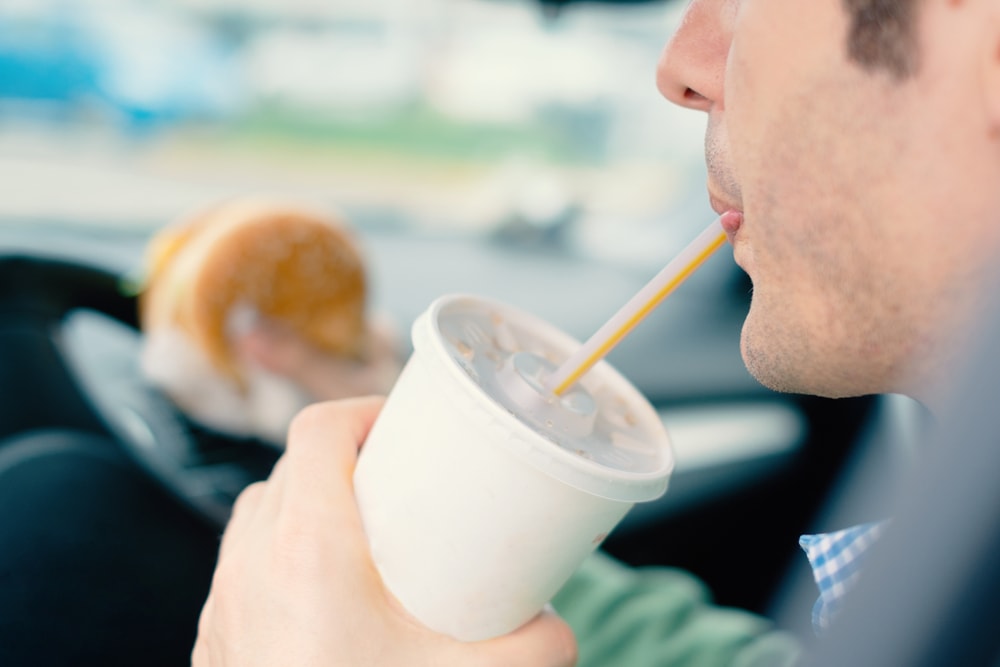According to the CDC, over half of the American population is drinking a sugary beverage, like soda, daily, which goes for adults and children alike. Sure, drinking water is a healthy beverage. However, many people claim they don’t like the taste of it. Plus, it doesn’t have that carbonated quench that soft drinks deliver. Even if you know water is healthier than pop, you probably aren’t convinced to switch to H2O. We could say drinking pop leads to weight gain and a slew of other unnecessary health problems. But maybe you would just switch to diet soda. However, diet is just as bad, if not worse, on your health than regular pop. Keep reading to discover what sugar in soda does to your body. Maybe after learning more about the side effects soft drinks have on your skin, heart, and brain, you’ll be able to cut back on sugary beverages.

20. Causes Weight Gain
Secreted by the pancreas, insulin is how the human body stores sugar. When the taste of artificial sweeteners reaches your brain, it sends signals to your pancreas to start producing insulin. When your pancreas produces insulin for anticipated sugar, but none arrives, your body becomes confused, disrupting its metabolic process. This process may explain why drinking diet pop leads to various symptoms. Those include higher blood pressure, larger waist circumference, and higher blood sugar.
When we think of going on a diet, counting calories is the most common method. Drinking a diet pop means that you have consumed zero calories, which means you can eat more. However, drinking diet soda fools your body into expecting sugar and changes how you metabolize other calories. Thus, you may store more of them as fat, using less energy. Artificial sweeteners are much sweeter than sugar. Even though it may not seem that way on your tongue, diet soda is sweeter than regular soda. All that sweetness without any calories muddles your brain and your metabolic processes, leaving you to crave sugar even more.
